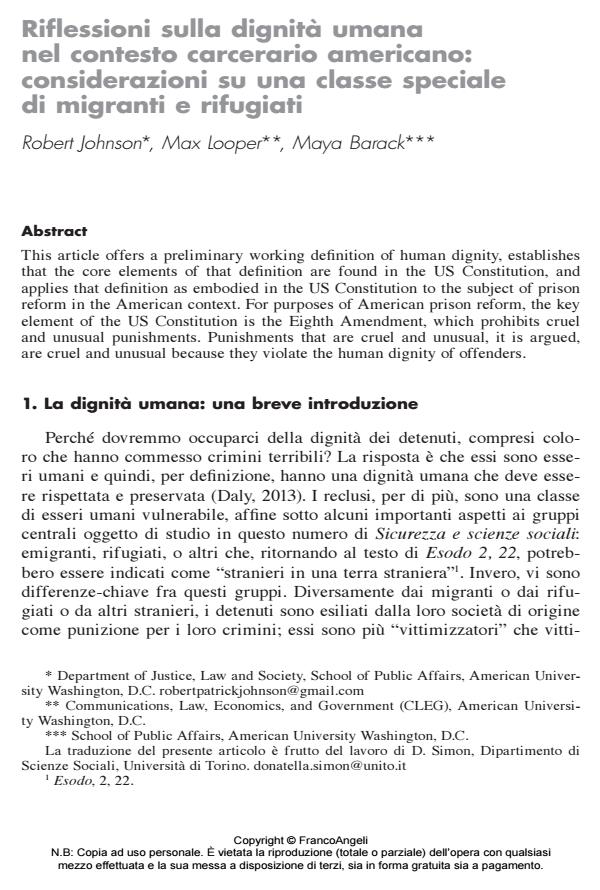Riflessioni sulla dignità umana nel contesto carcerario americano: considerazioni su una classe speciale di migranti e rifugiati
Journal title SICUREZZA E SCIENZE SOCIALI
Author/s Robert Johnson, Max Looper, Maya Barack
Publishing Year 2013 Issue 2013/1
Language Italian Pages 10 P. 173-182 File size 232 KB
DOI 10.3280/SISS2013-001014
DOI is like a bar code for intellectual property: to have more infomation
click here
Below, you can see the article first page
If you want to buy this article in PDF format, you can do it, following the instructions to buy download credits

FrancoAngeli is member of Publishers International Linking Association, Inc (PILA), a not-for-profit association which run the CrossRef service enabling links to and from online scholarly content.
The article deals with the migration phenomenon in the world after the terroristic attack of 9/11: globalization has changed the idea of immigration, bringing a renewed definition of borders and a new concept of security for migrants. It analyses the peculiar situation of women, the very vulnerable subject in those processes. In this perspective, the hardening of migration policies (more restricted standards and actions) could origine serious obstacles to ‘Securitizing’ migration, making the journey of migrants more dangerous, perilous, costly and open to exploitation and victimization.
Robert Johnson, Max Looper, Maya Barack, Riflessioni sulla dignità umana nel contesto carcerario americano: considerazioni su una classe speciale di migranti e rifugiati in "SICUREZZA E SCIENZE SOCIALI" 1/2013, pp 173-182, DOI: 10.3280/SISS2013-001014